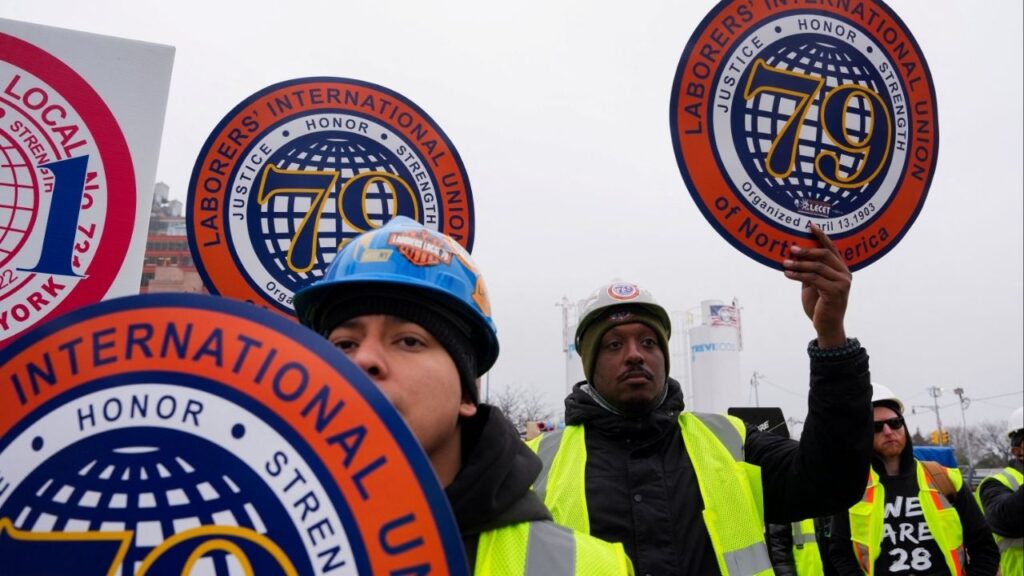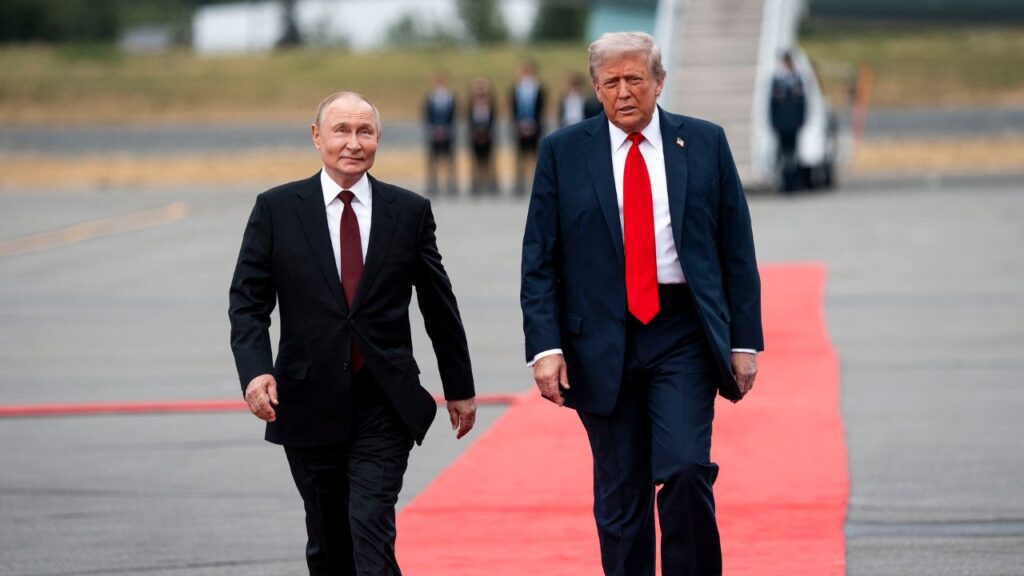Share
Workers at an Amazon warehouse in Bessemer, Alabama handed the online retail giant a decisive victory when they voted against forming a union and cut off a path that labor activists had hoped would lead to similar efforts throughout the company and beyond.
After months of aggressive campaigning from both sides, 1,798 warehouse workers ultimately rejected the union while 738 voted in favor of it, according to the National Labor Relations Board, which is overseeing the process.
Union to File an Objection Charging Company for Illegally Interfering
Of the 3,117 votes cast, 76 were voided for being filled out incorrectly and 505 were contested by either Amazon or the Retail, Wholesale and Department Store Union, which led the organizing efforts in Bessemer. But the NLRB said the contested votes were not enough to sway the outcome. About 53% of the nearly 6,000 workers cast their ballots.
The union said it would file an objection with the NLRB charging the company with illegally interfering with the union vote. It will seek a hearing with the labor board to determine if the results “should be set aside” after it accused Amazon of spreading disinformation about the unionization effort at meetings that workers were required to attend.
“Amazon has left no stone unturned in its efforts to gaslight its own employees. We won’t let Amazon’s lies, deception and illegal activities go unchallenged,” said Stuart Appelbaum, the president of the RWDSU.
Amazon said in a statement that it didn’t intimidate employees.
“Our employees heard far more anti-Amazon messages from the union, policymakers, and media outlets than they heard from us,” the company said. “And Amazon didn’t win — our employees made the choice to vote against joining a union.”
Bessemer was a ‘Long Shot’
The union push was the biggest in Amazon’s 26-year history and only the second time that an organizing effort from within the company had come to a vote. But Bessemer was always viewed as a long shot since it pitted the country’s second-largest employer against warehouse workers in a state with laws that don’t favor unions. Alabama is one of 27 “right-to-work” states where workers don’t have to pay dues to unions that represent them.
That the labor movement in Bessemer even got this far was unexpected. Amazon has an undefeated record of snuffing out union efforts before they can spread. And at a time when the economy is still trying to recover and companies have been eliminating jobs, it is one of the few places still hiring during the pandemic, adding 500,000 workers last year alone.
But the pandemic also revealed inequities in the workforce, with many having to report to their jobs even while the coronavirus was raging, leading to concerns over health and safety. The organizing efforts in Bessemer coincided with protests happening throughout the country after the police killing of George Floyd, raising awareness around racial injustice and further fueling frustration over how workers at the warehouse — more than 80% who are Black — are being treated, with 10-hour days of packing and loading boxes and only two 30-minute breaks.
In a press conference held by Amazon, four workers at the Bessemer warehouse said talk of mistreatment by the company was the opinion of a few workers, not all of them.
“We’re really sorry that their experience hasn’t been the same as ours,” said Will Stokes, one of the warehouse workers who voted against the union.
Months of Effort from Both Sides
The organizing effort inside the Bessemer warehouse began last summer when a group of workers approached the RWDSU about forming a union. The movement gained momentum ever since, attracting the attention of professional athletes, Hollywood stars and high-profile elected officials, including President Joe Biden.
During the voting process, workers were flooded with messages from Amazon and the union. Amazon hung anti-union signs throughout the warehouse and held mandatory meetings to convince workers why the union was a bad idea. It also argued that it already offered more than twice the minimum wage in Alabama plus benefits without paying union dues.
Union organizers, meanwhile, stood outside the warehouse gates trying to talk to people driving in and out of work. It also had volunteers call all of the nearly 6,000 workers, promising a union will lead to better working conditions, better pay and more respect.
Sen. Bernie Sanders, a progressive icon who traveled to Alabama for a pro-union rally last month, said he was “disappointed but not surprised by the vote.”
“It is extraordinarily courageous for workers to take on one of the world’s wealthiest and most powerful corporations, a company that spent unlimited sums of money to defeat the organizing effort,” he said in a statement.
‘Juicy Targets of Opportunity’
Mark Cohen, director of retail studies at Columbia University Business School, says that Amazon’s warehouses are “juicy targets of opportunity” for unions because they can be organized one at a time. The company employs more than 950,000 full- and part-time workers in the U.S. and nearly 1.3 million worldwide. Moreover, the status of Amazon’s founder Jeff Bezos as the richest man in the world makes him easy to vilify, especially when his company enjoyed record profits last year that climbed 84% to $21 billion.
Cohen, who used to be an executive at Sears Canada, called retail a “rough and tough” industry, adding that “Bezos has built a high performance-based culture with expectations of performance and productivity at every level down to the shop floor. If that’s not your gig, don’t go work for them.”
The National Retail Federation, which represents Walmart, Target and other big retailers, struck a tone of relief after the vote in Bessemer.
Unions Losing Ground but Organizers Not Giving Up
“Union representation is a choice for workers, but many clearly prefer opportunities in a competitive marketplace that provides strong wages and benefits over the anonymity of a collective bargaining agreement,” said David French, a spokesman for the federation.
Unions have lost ground nationally for decades since their peak in the decades following World War II. In 1970, almost a third of the U.S. workforce belonged to a union. In 2020, that figure was 10.8%, according to the U.S. Bureau of Labor Statistics. Private sector workers now account for less than half of the 14.3 million union members across the country.
Richard Bensinger, a former organizing director for the A.F.L.-C.I.O. and the United Automobile Workers, noted the large number of workers who didn’t vote in Bessemer: “To me, that’s all about the paralysis, the fear. They don’t want to be supportive of the company but they are afraid to stand up for the union.”
Despite the union defeat, Lynne Vincent, a professor at Syracuse University’s Whitman School of Management, believes the momentum of the labor movement will still grow, with more Amazon workers considering unionization and the possibility that labor laws will be changed to give employers less of an advantage.
“I don’t think Amazon can breathe comfortably,” she said.
Emmit Ashford, a pro-union Amazon worker in Bessemer who spoke at a press conference held by the retail union, said he is not giving up.
“This is just a spark that has started the fire,” Ashford said. “We will keep fighting. This experience has bonded us. Our time will come around again and next time we will win.”



















